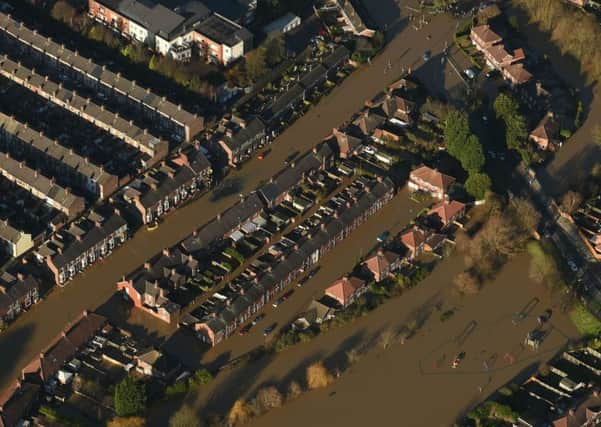Some Yorkshire councils '˜still helping with flood recovery effort' as toll of storms is shown


A survey by the Local Government Association (LGA) released today reveals that around 3,224 homes and 1,638 businesses in the region were swamped after storms Desmond, Eva and Frank swept across the country.
Calderdale was the worst-hit area in Yorkshire, with 2,135 homes and 945 businesses flooded after the deluges.
Advertisement
Hide AdAdvertisement
Hide AdMore than 15,000 homes and businesses were flooded in areas across northern England, according to the LGA’s snapshot survey.
Martin Tett, LGA environment spokesman, said: “Councils are doing everything they can to protect households and businesses from the possibility of further devastating flooding this winter.
“Such was the severity of last year’s storms, some councils, who have experienced significant reductions to their core funding, are still helping residents to recover even now.”
In Leeds, 298 homes and 375 businesses were affected. This compares to 404 and 96 in North Yorkshire, around 350 and 157 in York and 37 and 65 in Kirklees.
Advertisement
Hide AdAdvertisement
Hide AdA Government flood resilience review has warned that over the next decade there is a “non-negligible chance” of an event similar or even greater in scale than the floods in 2015.
A Government spokesperson said: “We have already provided almost £300m to help householders and businesses get back on their feet and we continue to work with local councils to help those affected.
“Our record £2.5 billion investment will better protect 300,000 homes from flooding by 2021 and we’re working closely with local councils, utility companies and residents to develop solutions tailored to local communities.”
She said that as part of our recent flood resilience review, they are working with utility companies to increase protection of key local infrastructure, such as phone networks and water treatment works, so communities are not cut off from the world when flooding occurs.